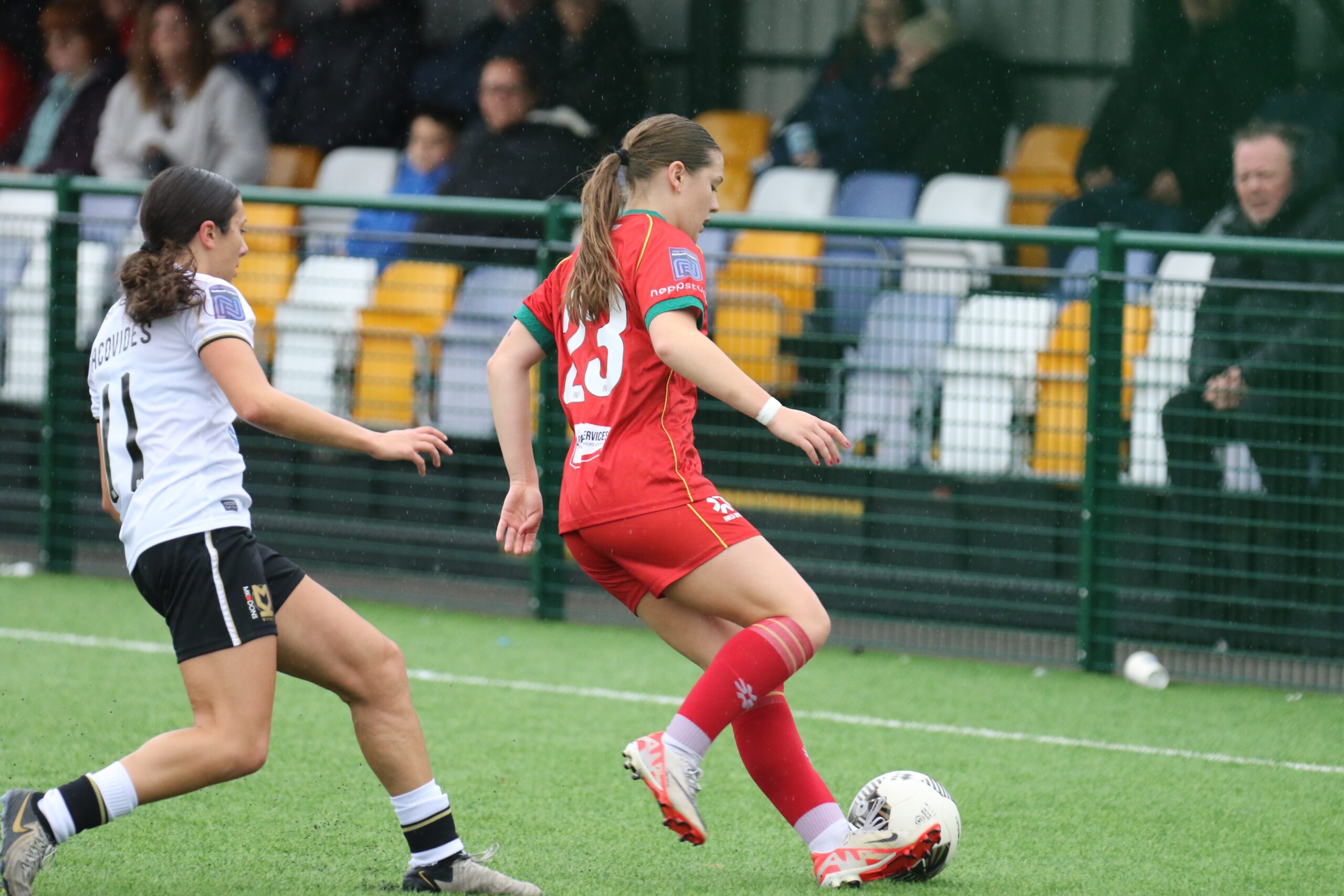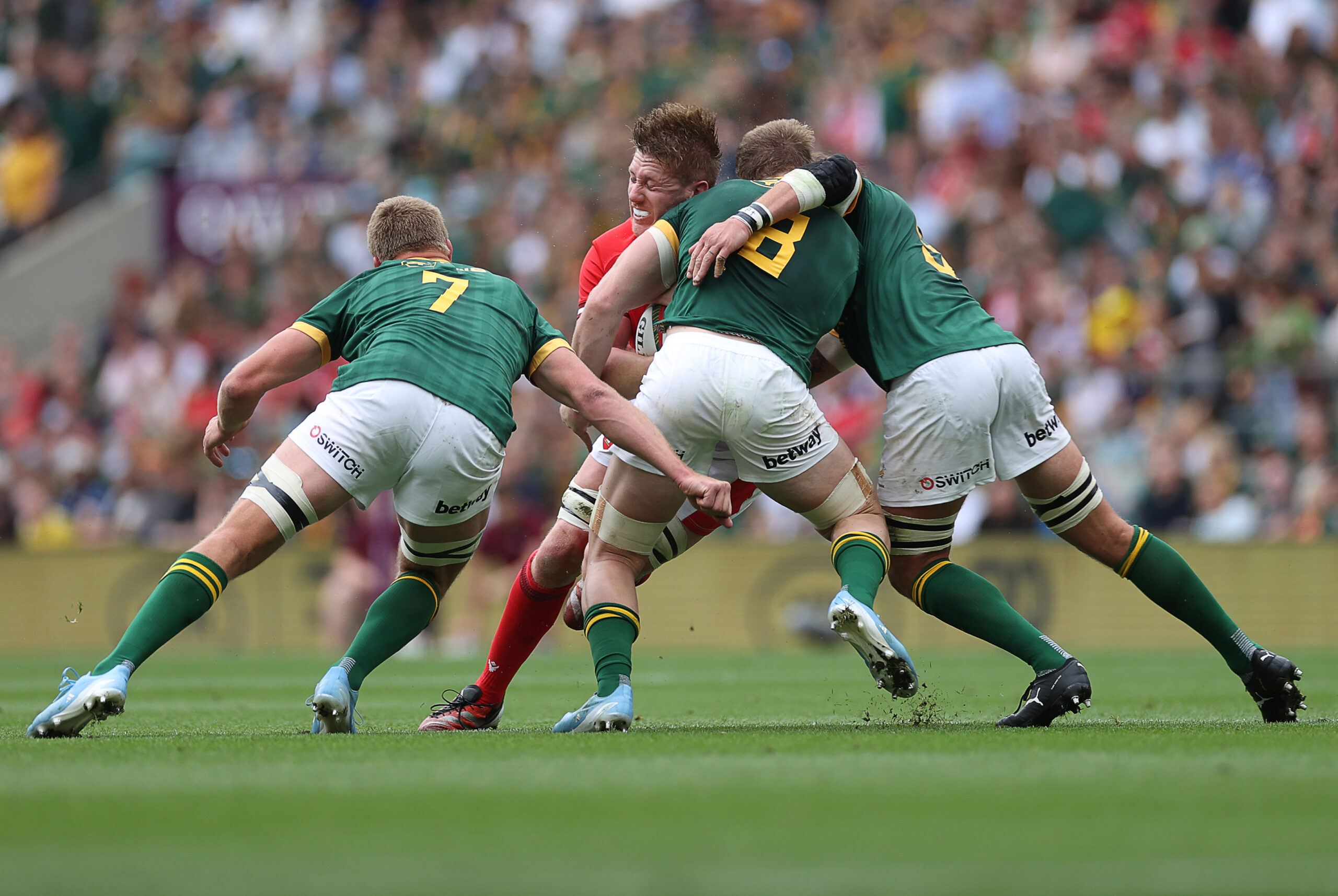Australia v Wales 1st Test – What Did We Learn?

Carwyn Harris
Wales’ first test in their two-match series against the Wallabies ended how every game has against them in the last 55 years. Defeat.
There were plenty of positives and plenty of negatives.
Wales will need to learn quickly from the negatives and develop the positives ahead of next week as they search for a win after eight defeats in a row.
The Individual Positives
There were several of these.
Aaron Wainwright, on his 50th cap, was back to his lung-busting best. Carrying brilliantly, beating would-be tacklers at will.
Indeed, were it not for a brilliant tap-tackle from player of the match Jake Gordon, Wainwright could have set up Bevan for a try after another brilliant bust.
Archie Griffin was another celebrating a notable milestone on the occasion of his first cap.
Having struggled on debut during the Six Nations against England, Griffin showcased the attributes which had led his former Wales U18s coach and ex international prop Chris Horsman to heap praise on him.
In the city of his birth, Griffin put in a superb 75-minute defensive performance, tackling everything that moved and making a significant impact on the defensive gainline.
With much room to grow it was a very promising display by the tighthead.
As mentioned, Bevan put in a good display, utilising his left boot to great effect with a good mix of end over end and box kicks turning and pressuring the Aussie back three.
A brilliant 50:22 showcased why his left foot will be a major asset to Wales and was unfortunate not to cap his display with a try.
Next will be to see more of the running threat which Matt Sherratt sees in a Cardiff shirt transfer onto the international stage.
Elsewhere, Kemsley Mathias and Sam Costelow performed well off the bench and Christ Tshiunza, ill-discipline apart, was a constant nuisance to the Wallabies, producing a brilliant turnover penalty two feet from his own line.
Also, both Dafydd Jenkins and Tommy Reffell made huge impacts in defence, particularly in the first half, even if Reffell wasn’t at his Tommy ‘Turnover’ best.
Attack
There’s two ways to look at this. On the one hand, the stats say Wales lacked punch in attack with only one try and a penalty try at that in the driving maul.
The bigger issue was perhaps that Wales didn’t take their chances. Having one try chalked off, the Bevan chance mentioned earlier, as well as picking a poor play from a five-metre scrum resulting in Hathaway being forced into touch.
However, particularly in the first half, Wales’ opening phase play was much improved from two weeks ago.
Against South Africa, too often Wales had one carrier with very few options either side to draw defenders from first phase.
Against the Wallabies, particularly in the first half, Watkin and Mason Grady were often used as foils with tip-on passes to Wainwright who had options either side of him in order to get over the gainline.
It wasn’t perfect but it was a clear improvement from a fortnight ago. Next up is being more clinical and continuing that play into multi-phase.
Set-piece
Sadly, many of these points will sound similar if you read the ‘What did we learn’ piece from South Africa.
The scrum struggled, particularly in the first half, coming under pressure from the ‘Tongan Thor’, Taniela Tupou.
It must be said, the scrum stabilised in the second half after Tupou went off, but it will be an area of concern for Gatland in the absence of Nicky Smith due to his baffling non-selection.
The lineout was also under significant pressure throughout the game, with new Australian captain putting pressure on at the front of the line.
Throwing has never been Wales captain Dewi Lake’s strength since his conversion from the back row although Wales need to find a way to be smarter with their throw and drill selection.
Towards the back end of the first half, Wales were forced to the front of lineout, hampering their attack and making it stilted with one phase in particular noticeably laboured as Ben Thomas caught the ball at 10 standing still.
Taine Plumtree will help in this area and he took a fair few takes himself alongside the dependable Aaron Wainwright.
Ill-discipline
As pointed out on Sky’s commentary, Wales were one of the most disciplined sides during the Six Nations, conceding on average the second fewest penalties per game.
However, against South Africa and Australia, Wales have competed a hatful.
Some of them were cheap as well, offside twice inside the opening 15 minutes, eventually leading to Gareth Thomas’ sin-binning and then there was the obstruction at the maul five metres out leading to the disallowed try and Christ Tshiunza playing the nine with 20 minutes remaining.
On the disallowed try, Warren Gatland said he wanted “clarity” on the decision, however, thanks to a typically clear explanation by Sam Warburton on Sky’s coverage, the decision appeared rather clear-cut.
After years of almost favouring the defensive side, rugby’s rules and referees are putting increasing emphasis on supporting the attack.
If Wales are going to persist with a tactic of focusing on fitness and defence, then they will have to improve their disciple and accuracy.
Midfield defence
Speaking of accuracy and defence let’s talk centres. Anyone who has played the game knows that communication in midfield is crucial.
Currently Wales don’t have a settled midfield combination and opposition sides are targeting it.
Against South Africa there were several errors in defensive reads through midfield and that was the case again against the Wallabies.
For Filipo Daugunu’s try, Mason Grady was drawn too narrow by a pod of forwards, giving the Aussie winger the opportunity to round him before sliding in in the corner.
Then for Tom Wright’s try, Australia capitalised on a loose kick from debutant Josh Hathaway with Australia’s fullback getting on the outside of Nick Tompkins.
Owen Watkin should have realised that his made inside him was in trouble and turned inwards but, in a blink of an eye, Wright was through and scoring what would be the final nail in the coffin from a Welsh perspective.
Compounding Errors & Gifting Momentum
Wales showed brilliant mental strength in the first half. Down to 14 men after Tupou’s try, captain Lake repeatedly asked his fly-half to kick for the corner, ignoring the three points on offer.
They took advantage of that momentum, awarded a penalty try for a third driving maul and had all the momentum on their side, but then came the errors.
A lineout stolen, then a kick straight out from Hathaway.
Later in the half Ellis Bevan, who was very good in all other aspects, knocked on under no pressure, with wing Rio Dyer picking the ball up from an offside position.
In the second half after one of Thomas’ penalties, Wales’ kick receive drill went awry, resulting in Liam Williams knocking on, again gifting momentum.
As it was put by Sam Warburton, this young Wales side need to learn how to keep their feet on the throats of the opposition when in charge.
Ruck accuracy
In the final 10 minutes especially with Wales chasing the game, Australia found it relatively easy to absorb the visitors’ attacks.
This was despite Sam Costelow impressing off the bench, however, the issue was inside of him.
Wales’ ruck accuracy was not good enough, not taking care to clear the defensive player and allowing the Aussies to cause havoc with counter-rucking and holding players up in the tackle.
All this did was slow the ball down, meaning Bevan or Kieran Hardy were left frustrated and fighting to generate quick ball.
What type of team are Wales?
Post game we were treated to the analysis of Warburton, Dan Biggar and Jamie Roberts as all three offered their assessment of Wales’ performance.
A key takeaway was Biggar’s assessment where he said that Warren Gatland and co. need to decide whether Wales are going to be a “possession-based team or a territory-based team.”
Messages from camp including centre Nick Tompkins have suggested Wales are aiming to be the latter, focusing on kicking, fitness and defence, in a similar style to Gatland’s first era in charge.
It was noticeable during the game that referee Pierre Brousset was more inclined to reward the attacking than the defensive team, a trend which has been an increasing feature over the last few years.
With rules also changing to encourage more attacking rugby, perhaps there needs to be a rethink in the style of rugby Wales are going to play long-term.
England showcased how a defensive and territorial game can work by running New Zealand close on Saturday morning but the question also needs to be asked whether Wales have the right players to make that style successful.
In the short term, with Wales now outside of the top 10 in the world rankings for the first time, Warren Gatland’s men will be hoping they can find a way to shake their recent hoodoo and win their first win in nine.
Otherwise, it will be a long wait until the autumn and tests against Fiji, Australia and South Africa.











